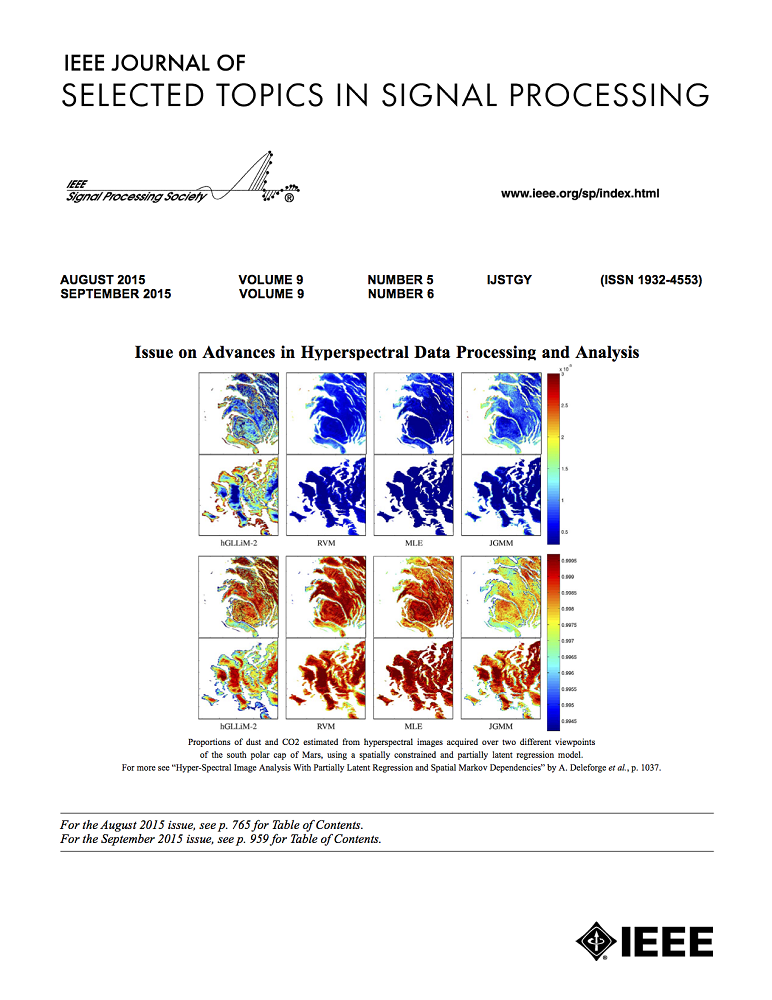RIS-Aided Near-Field Localization and Channel Estimation for the Terahertz System
IF 8.7
1区 工程技术
Q1 ENGINEERING, ELECTRICAL & ELECTRONIC
IEEE Journal of Selected Topics in Signal Processing
Pub Date : 2023-06-13
DOI:10.1109/JSTSP.2023.3285431
引用次数: 9
Abstract
The affordable hardware cost of ultra-large (XL) reconfigurable intelligent surfaces (RIS) renders them attractive solutions for the performance enhancement of localization and communication systems. However, XL-RIS results in near-field propagation channels, especially for the high-frequency terahertz (THz) communication system, which poses significant challenges for localization and channel estimation. In this article, we focus on the spherical wavefront propagation in the near field of the THz system with the assistance of a RIS. A near-field channel estimation and localization (NF-JCEL) algorithm is proposed based on the derived second-order Fresnel approximation of the near-field channel model. To be specific, we carefully devise a down-sampled Toeplitz covariance matrix, which enables the decoupling and separate estimation of user equipment (UE) distances and angles of arrival (AoAs). Using the sub-space based method and one-dimensional search, we estimate the angles of arrival (AoAs) and user equipment (UE) distances. The channel attenuation coefficients are obtained through the least square (LS) method. To alleviate the impact of THz channel fading peaks caused by molecular absorption, estimates on multiple sub-bands are utilized for location estimation. Simulation results validate the superiority of the proposed NF-JCEL algorithm to the conventional far-field algorithm and show that higher resolution accuracy can be obtained by the proposed algorithm.RIS辅助太赫兹系统近场定位和信道估计
超大型(XL)可重构智能表面(RIS)的可负担硬件成本使其成为提高定位和通信系统性能的有吸引力的解决方案。然而,XL-RIS导致近场传播信道,特别是对于高频太赫兹(THz)通信系统,这对定位和信道估计提出了重大挑战。在这篇文章中,我们重点研究了在RIS的帮助下THz系统近场中的球面波阵面传播。基于导出的近场信道模型的二阶菲涅耳近似,提出了一种近场信道估计和定位算法(NF-JCEL)。具体来说,我们仔细设计了一个下采样的Toeplitz协方差矩阵,它能够解耦和单独估计用户设备(UE)距离和到达角(AoAs)。使用基于子空间的方法和一维搜索,我们估计到达角(AoAs)和用户设备(UE)距离。信道衰减系数是通过最小二乘法得到的。为了减轻分子吸收引起的太赫兹信道衰落峰值的影响,利用对多个子带的估计进行位置估计。仿真结果验证了NF-JCEL算法相对于传统远场算法的优越性,并表明该算法可以获得更高的分辨率精度。
本文章由计算机程序翻译,如有差异,请以英文原文为准。
求助全文
约1分钟内获得全文
求助全文
来源期刊

IEEE Journal of Selected Topics in Signal Processing
工程技术-工程:电子与电气
CiteScore
19.00
自引率
1.30%
发文量
135
审稿时长
3 months
期刊介绍:
The IEEE Journal of Selected Topics in Signal Processing (JSTSP) focuses on the Field of Interest of the IEEE Signal Processing Society, which encompasses the theory and application of various signal processing techniques. These techniques include filtering, coding, transmitting, estimating, detecting, analyzing, recognizing, synthesizing, recording, and reproducing signals using digital or analog devices. The term "signal" covers a wide range of data types, including audio, video, speech, image, communication, geophysical, sonar, radar, medical, musical, and others.
The journal format allows for in-depth exploration of signal processing topics, enabling the Society to cover both established and emerging areas. This includes interdisciplinary fields such as biomedical engineering and language processing, as well as areas not traditionally associated with engineering.
 求助内容:
求助内容: 应助结果提醒方式:
应助结果提醒方式:


